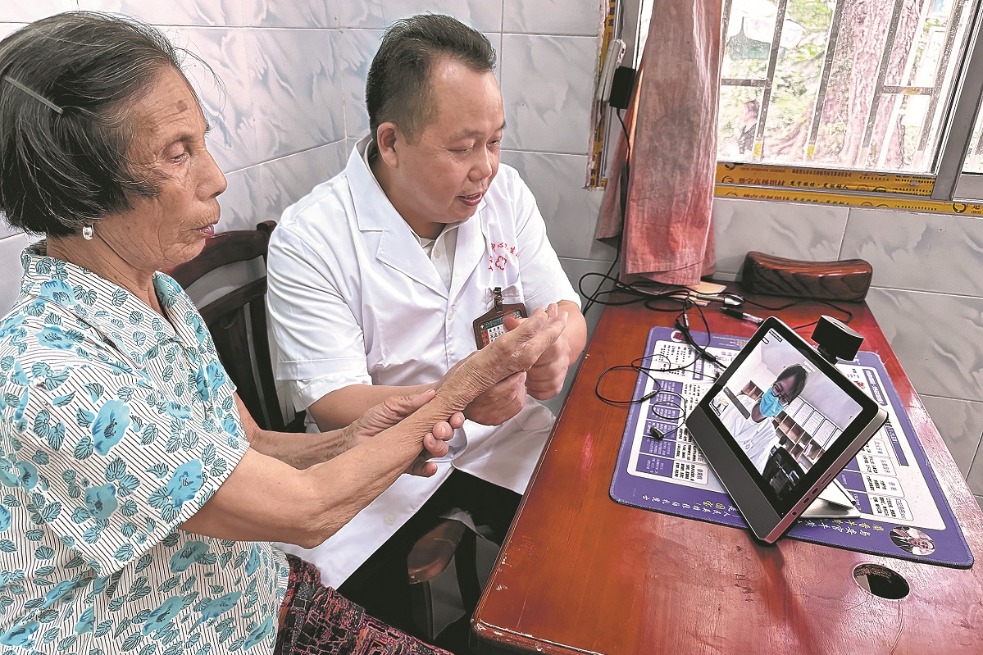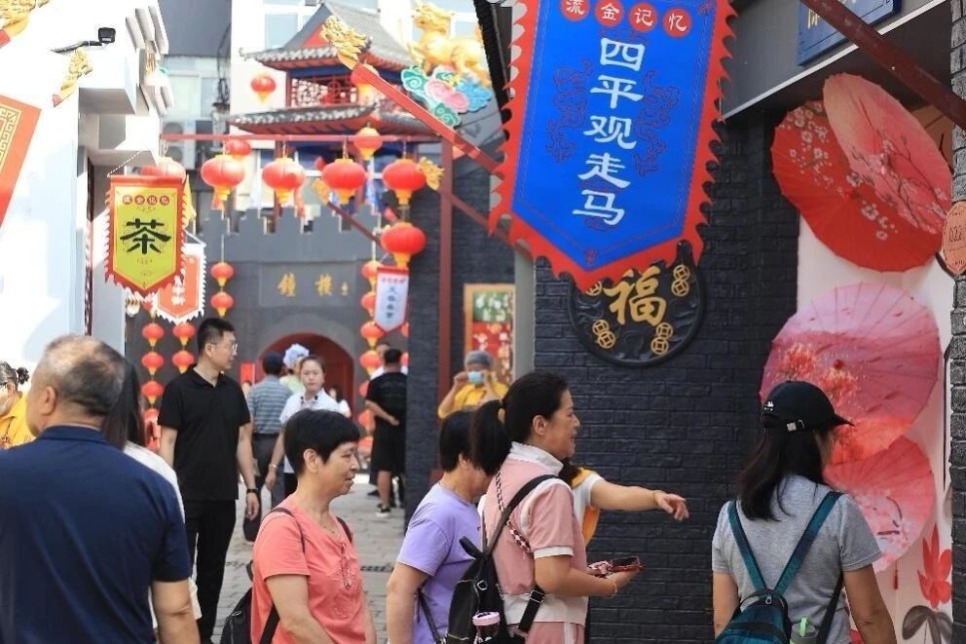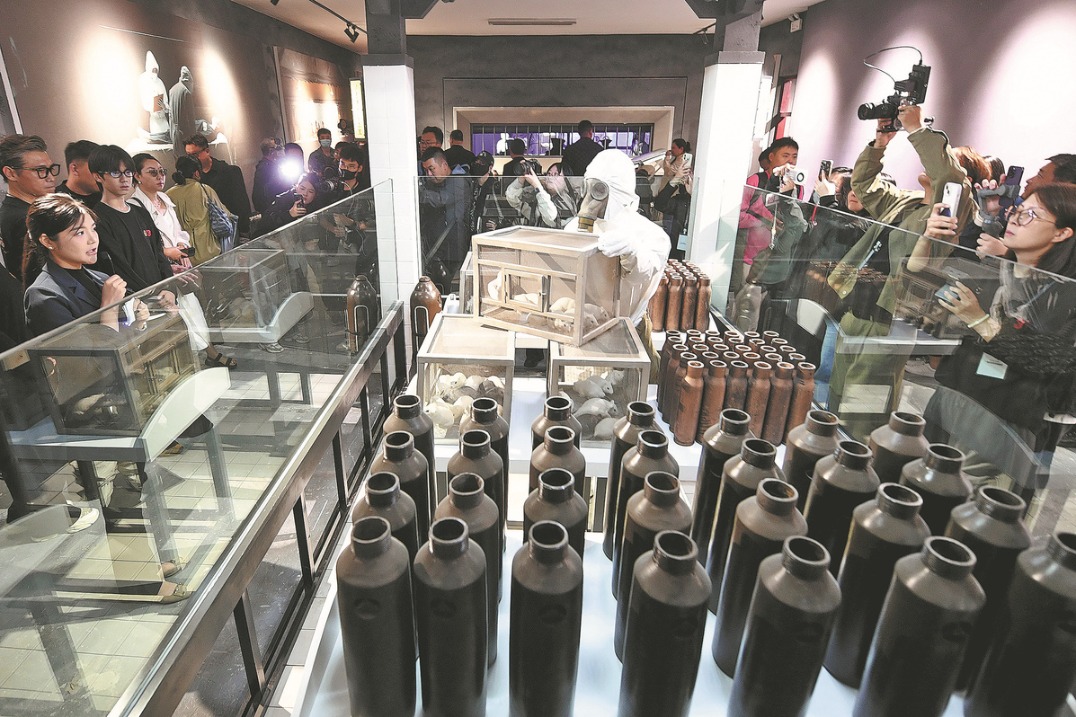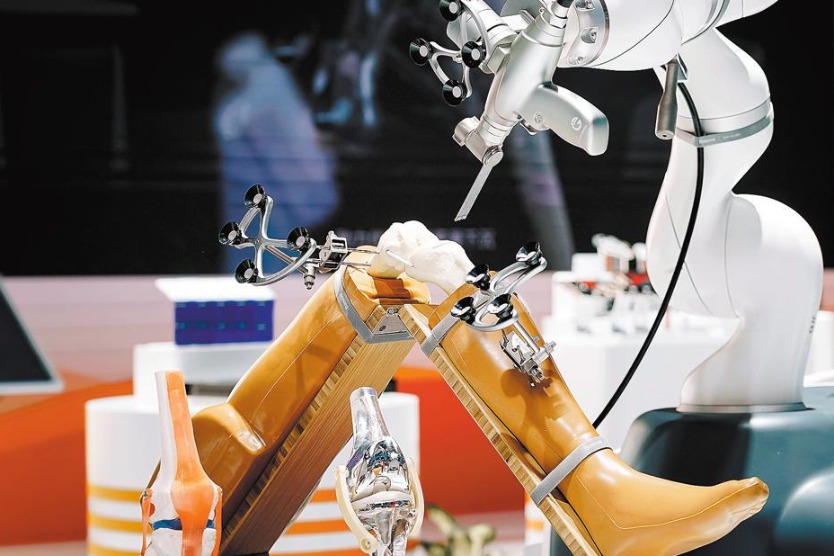'Red Scare' fear still haunts many

For Chinese Americans in the 1950s, the fear of speaking to strangers, harassment from the Federal Bureau of Investigation and shaming by the local press were terrifying. William Dere, an activist in the San Francisco Bay Area, recalled how his family and many other Chinese Americans suffered from the impact of the "Red Scare".
"The FBI would ring doorbells, talk to kids in the playground, tell lies to intimidate Chinese Americans to obtain information that would expose a person as a 'paper son'. The targeted individual can then be indicted on immigration violations," he said at a recent webinar hosted by the Chinese Historical Society of America.
One major way the government was able to attack the left at that time was investigating the use of false papers by Chinese people to immigrate to the United States, wrote Jean Dere, who is William's sister and also an activist, in an article published by the Journal of the Chinese Historical Society of America.
Their father, Kai Dere, was a member of the Chinese American Democratic Youth League, a progressive group. Because its members showed support for the establishment of the People's Republic of China in 1949, the group was among several organizations in the Chinese community targeted by the FBI during the Cold War and McCarthy era.
The US government also created a "confession program" in 1956, pressuring the Chinese community into "confessing" their immigration in exchange for immunity.
"An atmosphere of fear enveloped Chinatown. One person's confession inevitably incriminated many others," wrote Jean in the article.
As a result, their father was tried in court and finally had his citizenship taken away and was threatened with deportation. However, he was not deported as there were no diplomatic relations between the US and China at the time. "My dad became a stateless person with no passport, without the ability to leave and return to the United States," William Dere said.
Lesson from history
"They (the government) dumped their propaganda out and tried to change people's opinions. While they did this for the 'Red Scare' many times, we should learn that it's a tactic and strategy," he said. "I think it's really important that we learn from history and not to repeat mistakes."
Lillian Sing, a founding member of numerous human rights and women rights organizations in San Francisco, said the US government has not learned from history, unfortunately.
"It's just so sad that our government is repeating what it did to Japanese Americans during World War II, and what it did in the 1950s to the Chinese Americans and other activists of the McCarthy era," she said, referring to the "China Initiative", a program launched by the administration of Donald Trump to combat economic espionage.
After three years of FBI investigations, Sing said none of the cases brought under the initiative have involved spying related charges.
New research found that the majority of people accused of espionage in 2009 started shifting from individuals with Western names to those with Chinese names.
Andrew Chongseh Kim, a lawyer, co-authored the Committee of 100 report "Racial Disparities in Economic Espionage Act Prosecutions: A Window into the New Red Scare".
Their research analyzed data from 1996 to 2020 involving 276 individual defendants in 190 cases brought under the Economic Espionage Act.
Kim cited a few cases from their research. Xiaoxing Xi, a physics professor at Temple University, was handcuffed and pulled out of his home in front of his wife and two young daughters. Sherry Chen, an employee of the National Oceanic and Atmospheric Administration, was handcuffed and marched out of her office in front of friends and co-workers.
"Most defendants with Western names received a summons ordering them to appear in court, while 78 percent of defendants with Chinese names were arrested with handcuffs," Kim said. "Being arrested is a really traumatic experience."
Today's Top News
- Sino-US talks a silver lining amid clouds
- FM calls for sincere China, ROK relations
- Outbound tourism surges as young Chinese seek unique experiences
- Minister calls for stronger efforts to defend peace
- Sustained reforms fuel stable growth
- Defense leaders reaffirm security cooperation at Beijing Xiangshan Forum






























